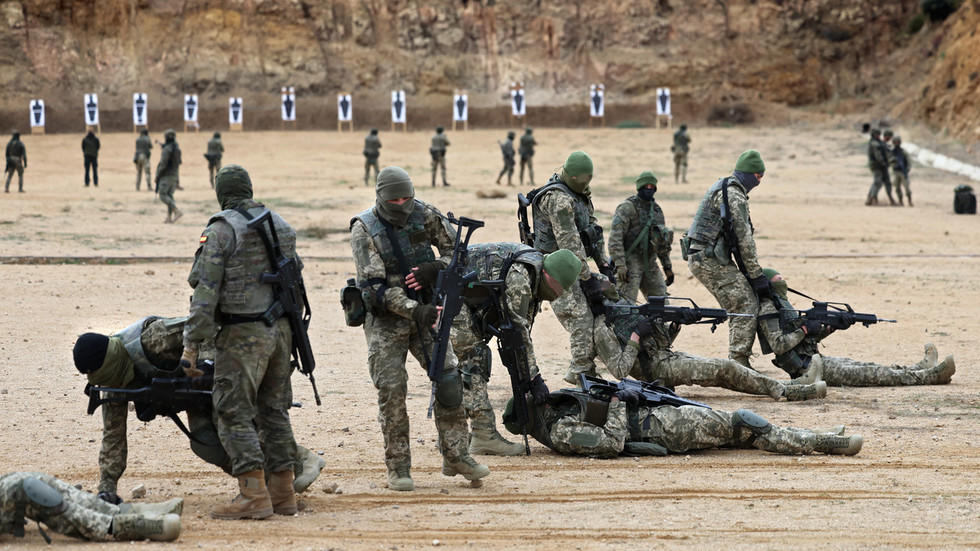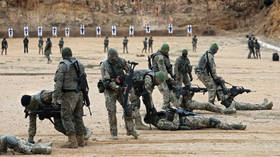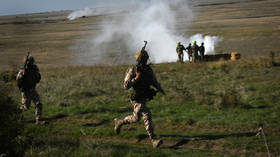
Opponents argue the scheme could make Zagreb a “target” for Russia

A Spanish military instructor trains a group of Ukrainian soldiers in the Spanish army base of Toledo. © AFP / Thomas Coex
Croatian lawmakers have failed to pass a motion for the Balkan country to join an EU program to train Ukrainian military personnel to fight against Russia.
During a vote on Friday in the national parliament, the Sabor, 97 MPs out of 151 supported the idea of training some 100 Ukrainian troops. The proposal required the backing of two thirds of lawmakers, and fell short by several votes.
Before the session, opponents of the European Union Military Assistance Mission argued that it could make Croatia a “target” for Russia.
The program, which the bloc considers its “widest” military mission to date, is expected to prepare 15,000 Ukrainian servicemen on the territory of some 20 member states. It will cost European taxpayers around €100 million (around $106 million). EU foreign policy chief Josep Borrell said in early December that 1,100 Kiev troops had already begun their training in various camps.

Read more
However, in Croatia, which is a member of both the EU and NATO, the program led to a major rift in the leadership.
President Zoran Milanovic, who is commander-in-chief of the Croatian armed forces, has strongly resisted involvement in the scheme. He argued that such a move “would mean bringing the war into Croatia.”
This led Prime Minister Andrej Plenkovic, whose cabinet backed the mission, to accuse Milanovic of harboring “pro-Russian views.” The government put the issue before parliament in an attempt to break the deadlock.
The eventual vote by the MPs reflects the overall split in Croatian society, with recent poll showing that some 60% of the population were against the country training Ukrainian troops.
Moscow has repeatedly said that weapons and other forms of assistance that Kiev has been receiving from the EU, US and other countries will not affect the outcome of the conflict in Ukraine, but will only prolong the fighting and increase the risk of a direct confrontation between Russia and NATO.




